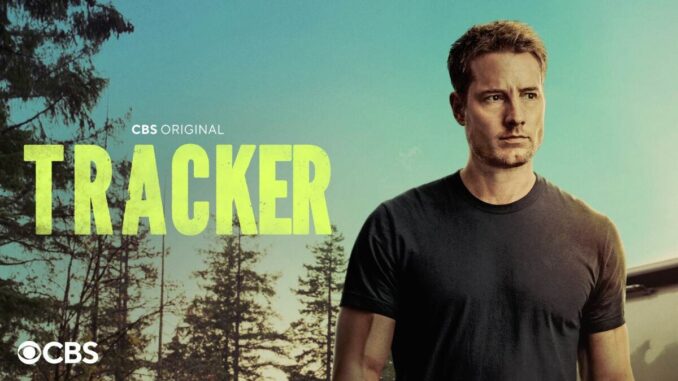
When Tracker first premiered, many expected a typical procedural — crime-solving, high-stakes chases, and episodic mysteries. But what audiences got instead was something far more intimate. The show’s personal storytelling style didn’t just make viewers invest in the cases — it made them care about Colter Shaw as a person.
So, what exactly makes this approach so bold? And why is it resonating so powerfully with fans? Let’s dive into how Tracker turned a familiar format into a deeply emotional experience.
What Makes Tracker’s Storytelling So Unique?
Unlike many shows in the crime or mystery genre, Tracker doesn’t just focus on the “what happened.” It’s more interested in the why and who.
The series dives into the emotional layers of its protagonist, Colter Shaw — a lone wolf who tracks missing people for reward money. But underneath that rugged exterior lies a complex, haunted man whose past shapes every decision he makes.
Colter Shaw: The Emotional Core of Tracker
Colter isn’t your typical TV hero. He’s not a cop, not a vigilante — he’s a seeker. Every episode peels back another layer of his psyche, revealing how his upbringing and family tragedies fuel his relentless drive.
This personal angle gives Tracker its edge. It’s not just about solving mysteries — it’s about understanding why Shaw can’t stop chasing them.
The Power of Vulnerability in Storytelling
Modern audiences crave authenticity. And Tracker delivers exactly that.
Instead of portraying Colter as an untouchable hero, the show allows him to be vulnerable. We see his fears, regrets, and emotional scars. That raw honesty pulls viewers closer, creating a bond that’s rare in traditional procedural storytelling.
A Shift from Plot-Driven to Character-Driven Narratives
Most crime dramas follow a strict formula — new case, new victim, new resolution. But Tracker breaks away from that.
Sure, there’s a mystery in every episode, but the heart of the story always circles back to Colter. His emotional growth is the throughline connecting each plot. This subtle shift makes Tracker feel more like a serialized drama than a formulaic procedural.
Flashbacks: Windows into Colter’s Past
Flashbacks in Tracker aren’t just filler or exposition dumps — they’re storytelling gold.
Each memory reveals something vital about Colter’s motivations. Whether it’s a glimpse into his fractured family dynamics or a painful lesson from his youth, these moments give context to his present-day actions.
Why This Bold Storytelling Choice Works
It’s risky to deviate from the traditional procedural format. Yet, Tracker thrives because it trusts its audience.
By blending personal emotion with thrilling cases, the show invites viewers to feel instead of just watch. That emotional connection is what keeps fans coming back week after week.
The Role of Cinematic Direction
Tracker’s visual style also amplifies its storytelling. The camera lingers on moments of silence, nature shots mirror Colter’s solitude, and close-ups capture the turmoil in his eyes.
It’s not just storytelling — it’s visual poetry.
Each frame is designed to make you pause and reflect, drawing you deeper into Colter’s inner world.
Comparing Tracker to Other Procedurals
If you compare Tracker to shows like NCIS or FBI, the difference is striking.
While those series thrive on fast-paced procedural structures, Tracker slows things down. It allows emotional beats to land, creating a sense of realism that makes its stories more relatable.
Jared Padalecki vs. Justin Hartley: A New Breed of Leading Man
Justin Hartley brings something special to Colter Shaw — a mix of grit and vulnerability.
His performance strikes a balance between action hero and emotional wanderer. It’s reminiscent of TV icons like Jack Pearson from This Is Us, but with the physicality of a modern-day lone ranger.
That duality is what keeps viewers emotionally hooked.
How Tracker Balances Action and Emotion
Some shows lean too heavily on either emotion or action, but Tracker nails the balance.
You’ll get your chase sequences, survivalist tactics, and plot twists — but they’re all grounded in human connection. The emotional stakes make the action sequences matter.
Thematic Depth: Freedom vs. Connection
At its core, Tracker explores one timeless theme: the tension between freedom and connection.
Colter’s nomadic lifestyle gives him independence, but it also isolates him. Every person he helps is a mirror of what he’s missing — belonging, trust, family.
This emotional duality gives the show its lasting resonance.
Fan Reactions: Why Viewers Are Loving It
Scroll through social media, and you’ll see it — fans are obsessed.
Many viewers say they expected another standard crime show but were surprised by how emotional the series feels. They relate to Colter’s loneliness, his need for redemption, and his search for meaning in every case.
Critics Applaud Tracker’s Fresh Approach
Critics have praised Tracker for “injecting soul into the procedural genre.”
Its combination of adventure, introspection, and heartfelt writing sets it apart from cookie-cutter network dramas. Some even call it the “modern-day western of television storytelling.”
The Future of Tracker’s Storytelling
As Tracker continues, fans are eager to see how much deeper the show will dive into Colter’s backstory. Will he finally find peace? Or will his quest for truth continue to haunt him?
If the writers stay committed to this personal narrative style, Tracker could redefine what audiences expect from network dramas altogether.

Why Tracker’s Storytelling Feels So Personal to Us
We all have something we’re chasing — closure, understanding, or redemption.
That’s why Tracker feels so universal. It’s not just Colter’s story; it’s ours. His journey reflects our own inner struggles, making every episode feel like more than just entertainment — it’s catharsis.
The Takeaway: A Bold Move That Paid Off
By daring to focus on emotion, vulnerability, and personal growth, Tracker has done something remarkable — it’s turned a procedural show into a character study.
This storytelling evolution is what’s making it stand out in today’s crowded TV landscape. Tracker isn’t just telling stories — it’s telling human stories.
Conclusion
Tracker’s personal storytelling style is a bold, refreshing change for television. Instead of chasing formulaic success, it chases emotional truth.
By putting character over case files and heart over headlines, Tracker has proven that even in the fast-paced world of network dramas, vulnerability can be the most powerful weapon of all.